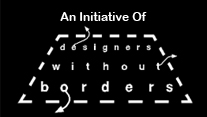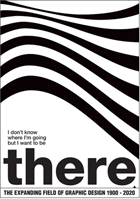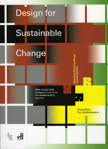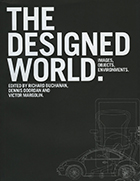Victor Margolin

I live in a densely-populated downtown Chicago neighborhood. When I moved to the neighborhood six years ago, there was a small local video store within easy walking distance and a large CD emporium, Tower Records, not much farther away. Now there is neither. Tower went down first when the entire national chain collapsed under the weight of voluminous internet downloading. The video store died recently, killed by the ease of getting videos through Netflix. As an alternative, there now stands a big red vending machine at my local supermarket where you can rent action films and kids’ animation for a buck a shot. The latest news on the disappearance front is Amazon’s recent effort to beef up sales of electronic versions of music and books. Jeff Bezos, Amazon’s president, has come up with a reader for electronic books with the odious name of Kindle, and Sony has released a similar device. There is talk that Borders is in trouble and might merge with Amazon, Perhaps both will go down in flames when publishers stop printing books and go digital with everything.
For someone like myself who grew up surrounded by bookstores, record stores and movie theaters this is all hard to take. I have no fundamental problem with digitizing cultural artifacts if it simply provides more choices for consumers. But I feel a deep sense of loss when the commercial spaces where I could once buy the artifacts begin to disappear. I realize that this transformation is largely generational and that I as an older person am on the wrong end of the market. But I also have to wonder why others are so quick to abandon the traditional retail outlets where one could rent DVDs and buy books or music. As a result, the sociability is sapped from the acquisition process. Over the years I have had pleasant chats with people in stores that sell or rent books, videos, DVDs, or records. Sometimes folks made recommendations that I followed. At bottom, however, is the fact that I consider these stores to be social spaces as well as retail outlets. There is also the factor of monopoly. With the demise of local DVD stores, Netflix is the main option for renting them. My neighborhood does not have a Blockbuster, and one of the best DVD rental outlets in the country, Facets Multimedia, is half an hour away. It’s hard to beat the convenience of Netflix but you have to subscribe monthly and there is no option for an impulsive visit to a rental outlet to get a DVD.
If books go the way of music, then we will all be carrying around these horrible metal boxes that promise storage of up to 400 books. Newspapers may not be far behind. They are already in big financial trouble, and the continuation of hard copies is tenuous. I don’t own a laptop and have a difficult time imagining how I would get the same pleasure and convenience from reading an actual newspaper if I had to read it on line while sitting at my computer. The large issue here is the social consequence of changing completely from a material to a digital culture. It’s not only about the loss of artifacts. It’s about a deep change in how we use them. I like the materiality of books. When I can see them physically, I think about them and consult them in ways that I would not if I had to search for them online. The same is true for CDS and vinyl. I enjoy having the actual things around. They are part of the decor in my apartment. I also like to clip articles from newspapers and put them in files for future use. Having them physically available and being able to regroup them and move them from one folder to the next is integral to the way I do research.
What most concerns me is that these changes are happening without any public debate. Commerce is in the driver’s seat. Compared to all the cultured people who had a hand in inventing the book and creating conditions for its use, it is disheartening to see that a Jeff Bezos has enough power to challenge that long tradition of book making with a culture-less technological device that will radically change the way we read and relate to printed matter. As soon as the market is strong enough to support something new, the plugs are pulled on what existed before. When publishers believe that it is more profitable to produce books electronically, they will stop printing hard copies. This is what the philosopher Ivan Illich called a “radical monopoly.” There is no longer any choice of media. The market and those who manage it determine how culture will be distributed.
Yes, this has always been the case but in the past it happened more slowly and less dramatically. There was more time to consider and test new options and reject those that were unfavorable. Now cultural changes are happening at lightning speed with little or no time to reflect on their consequences. And once markets shift, it is almost impossible to turn back, even if the latest innovations turn out to be duds. I am surely not the only person who laments these changes and is saddened by the loss of familiar institutions. Perhaps we who mourn these losses will become a viable subculture that continues to publish and read actual books, buy CDS, and rent DVDs from retail outlets. We might use the web to find each other and cluster in neighborhoods where we can support our habits. We might even be recognized by marketeers as a distinct consumer group whose needs can be catered to. What is certain is that we need to speak up and recount the losses entailed by the mad race to digitize the world.
Victor Margolin is Professor Emeritus of Design History in the Department of Art History of the University of Illinois at Chicago, and a founding editor of DesignIssues.











October 21, 2008 at 6:59 am
I hear what you’re saying and I too have been disturbed by the switch to digital “just-about-everything.” It’s not just that I can’t afford an iPhone, or even a full-sized iPod for that matter. I simply miss my old ritual, which consisted of driving an hour to the next “big” city to buy a new Compact Disk. I also miss having the artifact.
The only bad thing about the artifact… in the case of the compact disk… is that they get scratched all to hell. What I’m waiting for is a new and widely used technology that exists in the 3-dimensional world (unlike iTunes files) that will replace compact disks. Early in the millennium we thought that replacement would be mini-discs, but those fell off the face of the earth. MP3s will do for now, but I want that reach-out-and-touch-iness back.
At 21 years old, all of this whining about technology makes me feel way older than I really am… sitting here talking about the “good ole days when you could hold music in your hand.” In reality, I sit in the middle. I try to weigh the pros and cons and I can’t figure out if technology is evil or sacred. All I know for sure is that I’m glad I was born in ’87, not too early or too late. Teenagers these days take cellphones for granted and use them in inappropriate ways, like texting under the table at family dinner. It’s ridiculous and it could prove to be a long-term problem. My 14 year old cousin may never learn to look a girl in the eyes; all he knows is texting and instant messaging.
Anyways, I think that I have a little more faith in the matter than Victor does. All I mean to say is that I, personally, don’t foresee a future in which books are no longer printed, but digital. In fact, I think the idea is absurd as well as unlikely. If this does ever happen I will know that the end is near and I will join up with the crazies to help spread the word.
September 30, 2008 at 2:49 pm
I have been watching the slow but steady transition from physical media to digital based storage and I have to agree with you that I’m disheartened by this transition. More and more these days instead of gigantic CD or record collections people have massive databases of music on their computer, and instead of going out and purchasing their entertainment people look for the easiest way to steal it on the web. With Kindle coming out now books have fallen into the market of entertainment that’s available through technology.
Still, when I first heard of Kindle I can’t say I wasn’t a little excited about it. The ease and accessibility of having hundreds of books at your fingertip does sound tempting to me, probably a byproduct of growing up in the digital boom. However there is nothing like feeling the pages of a new book or comic rub between your fingers. I think there is a sense of realness we get from owning physical media that’s absent with digital media. Information on the computer for all I know is imaginary and with the click of a few keys all record of my entire music collection could be wiped out in the blink of an eye. Though digital media is accessible, cheap, and convenient it lacks the tangible quality of physical media and because of this I think it will be a little while longer before everyone gets behind this switch to digital media.
Still I fail to see how Amazon’s Kindle will maintain strict ownership of these books. The boom in illegally downloading music happened when music media was changed to the CD, a digital based media and the same can be said about movies and the DVD. Maybe the next big issue in Washington will be the piracy of books.
That seems to be the most disheartening aspect of the switch from physical to digital media; the fact that no one seems to care where their entertainment came from. As long as it lightens the strain on their checkbook the people will steal something without even considering the harm this is doing to the composers, directors, or writers of the entertainment they love. No one seems to care about supporting the artists who create the things that bring joy to our lives. Recently the selfishness in this country seems to know no bounds.
I sense a struggle forming between the ease of technology versus those of us who like to maintain rooted in at least some traditional practices. People today are constantly plugged into their technology, whether they are listening to their iPod or are talking on their cell phone and now with inventions like the iPhone more and more forms of technology are available at our fingertips. It seems inevitable that the digital movement will eventually succeed; however at that time I hope there is still a place for us analog people out there.